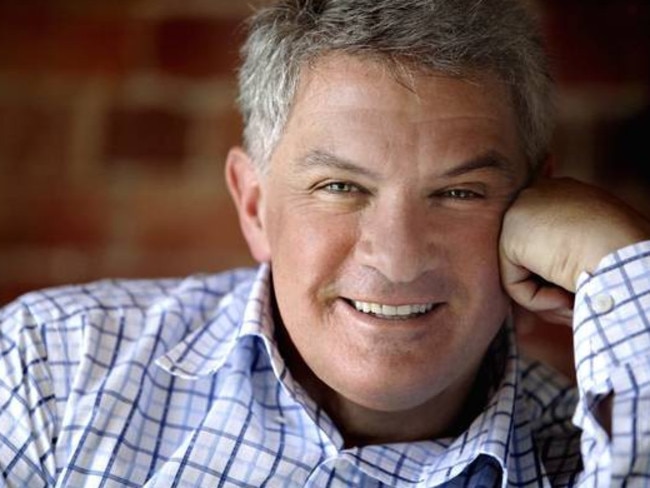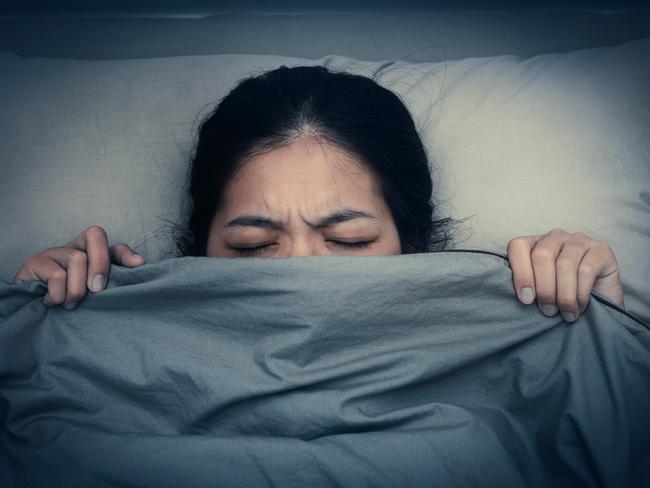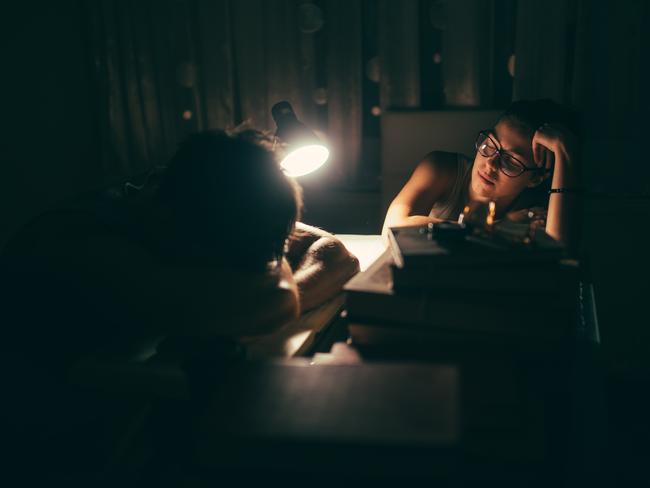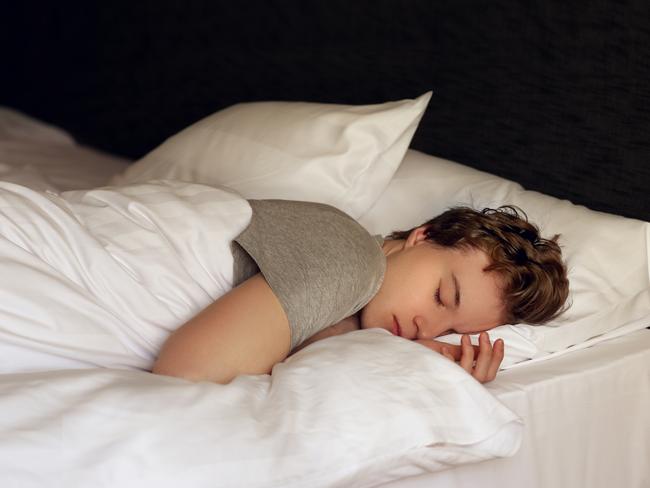Sunrise’s Dr Michael Carr-Gregg on what to do about teens’ sleep
PARENTS are often at their wits’ end when it comesto getting teenagers out of bed in the morning but Sunrise’s parenting expert Dr Michael Carr-Gregg says we should take another approach.

Manly
Don't miss out on the headlines from Manly. Followed categories will be added to My News.
SHAKESPEARE called it the “chief nourisher in life’s feast” and all through the animal kingdom, sleep ranks up there with food, water and sex for survival of the species.
As a child and adolescent psychologist, one of the most frequent complaints I hear from parents is the seeming inability of their offspring to get out of bed.
Many mums and dads point to the fact that they’ve been out late, watch Netflix all night or spent the night online or texting mates.
But the research boffins would beg to differ. While laziness and staying up all night do play a part the main culprit turns out to be their brain.
Circadian rhythms, or body clocks, first came under scientific analysis from French astronomer Jean-Jacques d’Ortous de Mairan in 1729.
He was puzzled as to why the leaves of mimosa plants went rigid in the day and drooped at night.

De Mairane had stumbled upon one of biology’s central facts — that plants, insects and mammals move to a daily rhythm that is determined by their internal body clocks, not the environment.
It would be another 230 years before the process was given a name.
In adults, the body clock is on for about 16 hours a day, generally corresponding to daylight.
As daylight disappears the body clock switches off, we feel sleepy and it is hard to stay awake. Before the advent of the electric light bulb this was a non issue — people hit the sack after a couple of hours by candlelight and stirred at daybreak.
But the invention of electricity and the subsequent introduction of shift working has progressively detached all of us from the 24-hour cycle of light and dark.
But with teenagers it is different. An error has crept into the hardwiring of their internal body clock, known as delayed sleep-phase syndrome.

When puberty arrives the body clock seems to work differently. Research shows that teenagers need around nine hours sleep.
If your adolescent finally drops off at midnight they are a long way from being ready to wake up when parents throw the curtains open at 7am.
This is why across Australia, when school time comes along, many parents tear their hair out in frustration.
I know of some who have resorted to playing their old John Denver records at high volume to encourage their sleepy teen out of bed.
I’m told Rocky Mountain High is particularly effective.
When the body clock turns off, the brain secretes the sleep chemical melatonin and sleep researchers have found that melatonin is produced very much later in the evening than in younger kids, for most teens around 11pm.

By being forced to get up after only seven hours sleep instead of nine, teenagers across Australia are building up a sleep debt, losing up to 10 hours or more every school week.
This only begins to change about the age of 20, when young people start to become more awake in the morning.
Apart from the fact that these students will be up to 25 per cent less alert when they arrive at school, the problem with being woken up too early is that they are missing out on REM sleep, a particularly deep sleep vital for memory and learning.
A lack of REM sleep is associated with anxiety, depression, poor immunity, accidents, poor judgment and memory.
While many kids make up for this lost sleep by sleeping in on the weekends, significant numbers still show symptoms of severe sleep deprivation.
Given that the natural body cycles of teenagers mean they function better later in the day and are most alert in the afternoon there is a growing consensus that we should let them sleep in and start school later in the day.

Australian schools should be open to a variation in starting times to optimise learning, for three main reasons.
First, there is an evidence base.
One of the brightest stars in the Australian psychological firmament, clinical psychologist Andrew Fuller, trialled later start times at two Victorian schools and found a decrease in bad behaviour and an improvement in academic results
with the introduction of a 10am start and 4pm finish.
Second, teachers — often unfairly maligned — also suffer from sleep deprivation and their psychological and physical wellbeing would have to improve with a later start time.
Third, our congested roads and trains would be a lot less clogged if commuters did not have to compete with the kids going to school at the same time.
Because melatonin levels change as children get older, the ideal situation would be to have staggered start times, earlier for primary school pupils and later at high schools.
The Victorian State Secondary School system has led Australia on any number of issues, such as drug education.
Can anyone seriously suggest why we should not trial later school starting times for teenagers, on a larger scale?
THIS TECHNOLOGY MAY FOREVER CHANGE HOW YOU SLEEP
GETTING ENOUGH SHUT-EYE:
■ Research shows teenagers need about nine hours sleep a night
■ When the body clock turns off the brain secrets the sleep chemical melatonin
■ Melatonin is produced later in the evening for teenagers than young children. For most teens it is produced around 11pm.
■ REM sleep is a particularly deep sleep vital for memory and learning.
■ A lack of REM sleep is associated with anxiety, depression, poor immunity, accidents and poor judgment and memory.
Read more in Future Leaders 2017: our guide to education in Sydney.


